Courtesy: Editorial, Daily Kashmir Times dt. May 10th, 2009
Only five months back, the assembly elections in Jammu and Kashmir saw an unexpected turnout of voters in Kashmir Valley, close on the heels of the spectre of sea of humanity that would descend on the streets at the mere call of the separatists during the land row agitation. And this time, it is more or less deserted streets, at least in several pockets of the Valley. Erratic behaviour is not without a reason. What is it that inspires a person to vote or boycott elections? There may be no simplified answers. The reasons may be as complex and varied as the changing mood of the people. In no circumstances, should this wavering trend be attributed to a single factor. There are too many lying at the fountainhead of this sweet and sour of voting patterns in the Valley, especially off late. It is absolutely clear that in the last assembly elections despite 'azadi' slogans generating huge popular protests throughout the length and breadth of the valley, as witnessed during the land row agitation last summer, just days before the elections began, people came out to vote because they deemed their day to day development and employment issues as not only significant but also delinked from the resolution of Kashmir issue. By and large, people voted because they realise that some contestants in poll fray would make it to the legislative assembly and governments will be formed even if there is less than 10 percent voting. A government will be in place - no voting, coercive voting or bogus voting. So the natural reaction is why not to vote more consciously. So, they voted for a better choice, or lesser of the evils, whatever the case may be. In a land where developmental imbalance has kept some areas so backward, the people's obsession with their day to day matters becomes more significant. No amount of calls by the Hurriyat leaders for a complete boycott of the elections made any difference as the polling percentage went upto 50 and beyond.
Then why is it that when the same separatist leaders again call for a poll boycott, the people by and large decided to stay away. Can the waning or increasing influence of the separatists have something to do with it? Most likely not, though to some extent the stand of the United Jehad Council, an umbrella organization of Kashmiri militant groups, does make an impact. The UJC's appeal for boycott in the last assembly elections was too mild, rather absent, unlike its rhetoric during the parliamentary polls. But then there are other reasons for people to stay away. Firstly, there is a vast difference between the assembly elections and the parliamentary polls. As far as the common man is concerned, the former is related to their development and governance issue and the latter is an exercise to elect a government in power at the Centre. The parliamentary elections thus become something distanced and insignificant. Rather they become an idea that Kashmiris, still enamoured by the slogan of azadi would like to not associate with. An Indian democratic process is none of their concern, would be the political stand of some. Some of this disenchantment with parliamentary polls also stems from a mindset that is not peculiar to Kashmir alone but stands true for rest of the country as well. In most places, the voter turn out in assembly elections is far higher than the parliamentary polls. This time in Kashmir, this detachment from parliamentary polls was further supplemented by the fact that the time gap between the assembly and Lok Sabha elections was too less to generate any enthusiasm. Secondly, and more importantly, the disenchantment with the newly elected representatives and the new government in place which has not even been able to sketch out a road map for fulfilling all the promises it made during the time of asking for votes. It is this disillusionment with electoral politics every time that adds to the weight of the separatists, who may not have essentially risen from their own stature in the past few months. There is nothing exceptional about their statements or their behaviour that may earn them extra points. The support to their call is instead more inspired by a process of elimination, which is the norm elsewhere in India as well. Except, elsewhere in the country, this process for elimination guides people to vote for the 'other' party; in this part of the world, among other alternatives the politics of boycott, fuelled by the popular slogan of azadi, has a far greater appeal. However, a more compelling reason for the change in mood of the voter in Kashmir is how the high voter turnout was used by the mainstream politicians in and outside the state to interpret is as a vote against 'azadi' and separatists, which it was not. The propaganda machinery that was oiled after the assembly elections in Jammu and Kashmir throughout last winter is what makes them flinch and retreat. What perhaps appalls the people more than anything else is how their voting patterns are used, rather abused, to misinterpret their ideologies by political beings of any shade and hue.










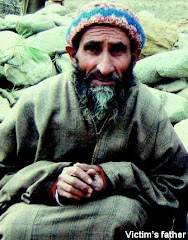



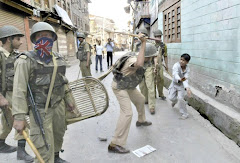


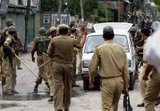



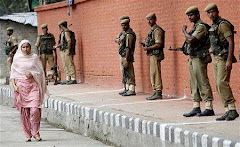














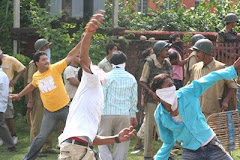

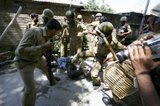




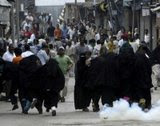







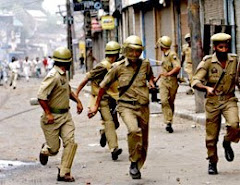
No comments:
Post a Comment